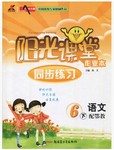题目内容
A recent study, published in last week’s Journal of the American Medical Association, offers a picture of how risky it is to get a lift from a teenage driver. Indeed, a 16-year-old driver with three or more passengers is three times as likely to have a fatal accident as a teenager driving alone. By contrast, the risk of death for drivers between 30 and 59 decreases with each additional passenger.
The author also found that the death rates for teenage drivers increased dramatically after 10 p.m., and especially after midnight, with passengers in the car, the driver was even more likely to die in a late-night accident.
Robert Foss, a scientist at the University of North Carolina Highway Safety Research Center, says the higher death rates for teenage drivers have less to do with “really stupid behavior” than with just a lack of driving experience. “The basic issue.” he says, “is that adults who are responsible for issuing licenses fail to recognize how complex and skilled a task driving is.”
Both he and the author of the study believe that the way to mitigate (使……缓解)the problem is to have states institute so-called graduated licensing systems, in which getting a license is a multistage process. A graduated license requires that a teenager first prove himself capable of driving in the presence of an adult, followed by a period of driving with night of passenger restrictions, before graduating to full driving privileges.
Graduated licensing systems have reduced teenage driver crashes, according to recent studies, About half of the states now have some sort of graduated licensing system in place, but only 10 of those states have restrictions on passengers, California is the strictest, with a novice (新手)driver prohibited from carrying any passenger under 20(without the presence of an adult over 25)for the first six months.
Which of the following situations is most dangerous according to the passage?
A.Adults giving a lift to teenagers on the highway after 10 p.m.
B.A teenager getting a lift from a stranger on the highway at midnight.
C.Adults driving with three or more teenage passengers late at night.
D.A teenager driving after midnight with passengers in the car.
According to Robert Foss, the high death rate of teenage drivers is mainly due to ________.
A.their frequent driving at night
B.their lack of driving experience
C.their improper way of driving
D.their driving with passengers
According to Paragraph 3.which of the following statements is TRUE?
A.The licensing authorities are partly responsible for teenagers' driving accidents.
B.Driving is a skill too complicated for teenagers to learn.
C.Restrictions should be imposed on teenagers applying to take driving lessons.
D.Teenagers should spend more time learning to drive.
The most suitable measure to be taken to reduce teenagers' driving accidents is that ________ .
A.driving in the presence of an adult should be made a rule
B.they should be prohibited from taking on passengers
C.the licensing system should be improved
D.they should not be allowed to drive after 10 p.m.
【小题1】D
【小题2】B
【小题3】A
【小题4】C
解析:
略

 阳光课堂同步练习系列答案
阳光课堂同步练习系列答案A recent Living Social survey showed that Americans may live up to their poor reputation while travelling abroad. But what’s more surprising is that many of those surveyed self-identified themselves as ‘ugly’ Americans and the world’s worst travelers.
Those in the U.S. ranked themselves as the worst travellers by a shocking 20 per cent, followed by 15 per cent saying the Chinese were the most substandard tourists.
Americans topped the list as being the worst-behaved travelers in a survey of 5,600 respondents, 4,000 of whom were Americans. Other respondents were in Australia, Canada, Ireland and the United Kingdom. But even American respondents considered their compatriots(同胞) as the worst travelers from a list of 16 nationalities.
Canadians and Australians also put Americans in the No. 1 spot. Irish respondents pointed to U.K. residents and U.K. respondents gave Germans the nod. On the other hand, 37% of Americans opted for "none of the above" in answer to the worst-tourists question, displaying more tolerance and open-mindedness than the other nationalities.
Other survey questions had respondents admitting pilfering from hotels. Four in ten U.S. survey-takers said they’d stolen something – mostly towels (28%) and bathrobes (8%). Other popular pinched items included pillows, remote controls, Bibles and sheets.
Not surprising is that Americans have less time off from work than other nationalities. Americans reported getting 16 days off, compared with 28 days for the Irish, 27 days for Australians, 23 days for U.K. workers; and 21 days for Canadians.
In the travel mishaps department, the most common travel disaster reported by Americans was lost luggage on an airline (21%); bad weather (21%); and getting very lost (16%).
As for places Americans most want to see, Disney World and Las Vegas made the top 10, but they weren't at the top of the heap. And New York didn't make the cut.
1.What percentage of American respondents is in the survey?
|
A.20 % |
B.15% |
C.71% |
D.37% |
2.The underlined word “pilfering” in Para. 5 most probably means ________.
|
A.taking |
B.bringing |
C.stealing |
D.borrowing. |
3.According to the survey, what kind of things are most taken away by Americans?
|
A.towels and pillows |
|
B.bathrobes and remote controls. |
|
C.towels and Bibles |
|
D.bathrobes and towels. |
4.What’s the best title of this passage?
|
A.Chinese were announced as the world’s worst travellers. |
|
B.The global worst travellers were announced. |
|
C.Disney World is the best destination to Americans. |
|
D.European travellers were the best in the world |
